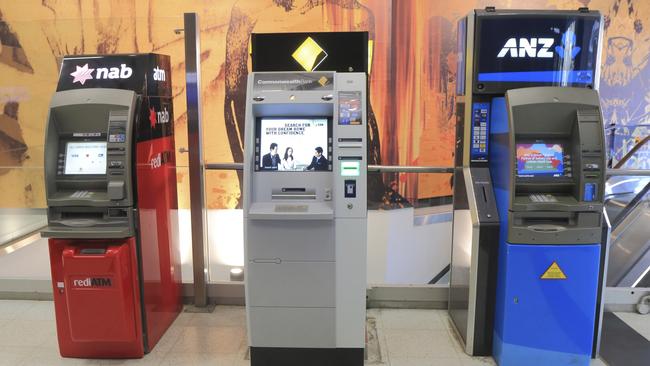
David Gonski (ANZ), Ken Henry (NAB), and Lindsay Maxsted (Westpac) would not trade shoes with the CBA chair Catherine Livingstone.
But before Messrs Gonski, Henry and Maxsted get too comfortable let me warn them that there is a new set of horrendous corporate governance rules that have been imposed on banks in Australia with fines for breaches that are potentially even greater than money laundering.
Each of the majors had better get their act together in this new area or, like the Commonwealth, they will have the potential to be fined amounts that wipe out their capital.
Unfortunately there are early signs they are stumbling at this new hurdle. And as I describe below the new rules may also have implications for the Chinese role in our property market.
To Catherine Livingstone’s credit, the CBA chairman is tackling the money laundering and terrorism funding issues faced by the Commonwealth Bank head on — a role we have rarely seen from the chairman of a major company in Australia.
She has no choice because her CEO, Ian Narev, is wounded. In addition, Goldman Sachs has alerted the market that the fines ahead could be worse than originally expected, which has affected the share price (as readers will know that is also my view).
The new set of potential fines are in many ways more dangerous than the money laundering fines because they are going to be harder to police.
To explain what has happened I have to take you back a few years to when the US required Australia and many other countries to register with the US so-called “persons of interest” as part of their Foreign Account Tax Compliant Act (FATCA).
Banks were required to alert the US when an Australian could be linked to a US citizen operating in Australia. The grounds for being a “person of interest” were incredibly wide and included joint signatories, trustee obligations and any joint venture situations.
Gradually, banks began to organise themselves to satisfy the US requirements which were designed to pick up on drugs and other related offences.
When dealing with one country it was not such a huge task but along the way other countries said they also wanted to be alerted to “persons of interest”. So the Organisation for Economic Cooperation and Development (OECD) set up a set of regulations known as CRS (Common Reporting Standard) in 2014 which in affect made countries like Australia responsible for reporting “persons of interest” to a much wider range of nations. These regulations are now starting to bite and in all Australia has an incredible 101 countries where banks have to report on “persons of interest”.
This gives our banks an horrendous administrative task carrying huge penalties for mistakes.
I won’t go through the fines and how they are calculated but in simple terms if a bank has 10 million customer accounts and hits a 0.1 per cent error rate it has a $1.3 billion dollar penalty exposure. Given the complexity of the task a 0.1 per cent error rate is very small.
The immediate risk exposure is not great because the Australian administrators, ASIC and the Australian Taxation Office, have told our banks that they are going to be soft in the first couple of years.
However they will be making sure that the banks are making a real effort to get their systems in place to satisfy the obligations. Unfortunately, as I understand it, CRS is not a high priority in a number of banks and the chairmen of those banks will need to get their acts into place because, if they don’t, their dividend will be in jeopardy and they will be in the same position as Catherine Livingstone.
And I might add that the poor old Commonwealth Bank, which is under siege for its alleged money laundering breaches, must front up to this new set of rules as well.
In my view public servants who signed us up for these horrendous penalties were not thinking clearly about the implications of what they were imposing on our banks. In theory their actions could undermine our financial system.
Around the world a lot of effort is going into software programs to enable banks to comply but it is not easy and there will be mistakes.
The really fascinating and challenging “persons of interest” will be those linked to China.
China is one of the 101 countries and Australia must make its first reporting of “persons of interest” to the Chinese in 2018 — just one year away.
The Chinese will be eager to discover these persons of interest because a great many of overseas Chinese have been buying property via links to Australian local residents. These local Chinese will show up as “persons of interest”. The Australian banks do not have to report the actual transactions that are taking place with the “persons of interest” but they have to name the people and their bank accounts, including the bank balances.
This is a serious matter for bank shareholders, chairmen and chief executives.





Although they would never admit it, the chairmen of the three banks not caught in the anti-money laundering tangle that is facing the Commonwealth Bank are very relieved.